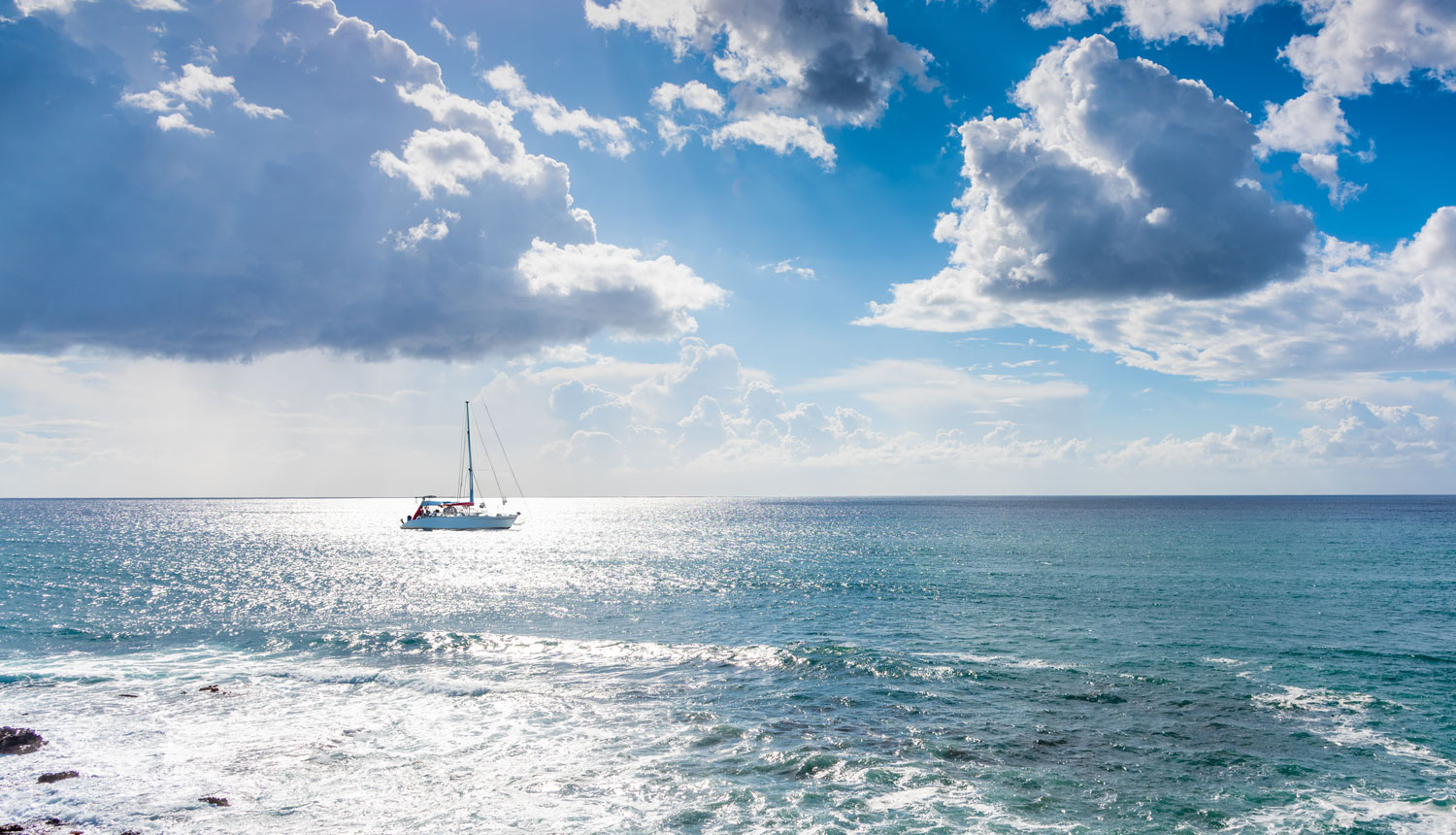Watersports sunglasses – why do we wear them, and what are the risks if we don’t wear them? And do variations in weather conditions leads to a change in risk to eye health – and hence our reasons for wearing them?
Today we’re going to focus on a question often overlooked: should we wear water sunglasses when the sun seems reluctant to make even a brief appearance?
Despite the absence of direct sunlight, your eyes are still at risk from invisible dangers, perhaps even more so than with direct sun.
Did you know that as the visible light levels drop, your iris opens wider to let more visible light in? If you’re not wearing UV blocking sunglasses, this will also expose your eyes to more UVA/B radiation.
We’re going to shed light on why marine sunglasses are just as necessary on cloudy days, and the optimal eyewear rig to take with you on those changeable or moody days when UV and visible light levels are fluctuating.
Do clouds block UV rays?
When we think of sunglasses, bright, sunny days typically come to mind. However, UV and visible light can be just as harmful on overcast days, especially around water. In fact, the surprising truth is that clouds can actually increase the ultraviolet (UV) rays that hit your skin and eyes. It may seem counter-intuitive, but puffy white clouds are highly reflective and UV radiation is very accomplished at bouncing off them.
Additionally, whether it’s an ocean, a lake, or a river, water functions as a natural mirror, bouncing back the sun’s UV rays. This reflection increases the amount of UV radiation you’re exposed to so it’s coming at you from both above and below. And if you’re on a boat or yacht with white surfaces, then you can add a third source of being zapped. The best sunglasses for sailing and other watersports will filter out all the UV rays, no matter where they are coming from.
Visible light, on the other hand, is reduced on cloudy days, but the glare caused by its reflection from the water can still be intense. This glare can cause discomfort, reduces visibility, and even temporarily impair vision, making activities like boating or jet-skiing potentially unsafe. If you’d like to learn more about the differences between visible light and UV radiation, check out our blog article “Eye Protection: Understanding ultraviolet and visible light”
Wearing sunglasses on cloudy days, particularly near water, is crucial to protect your eyes from both UV rays and glare, and to maintain safe navigation.
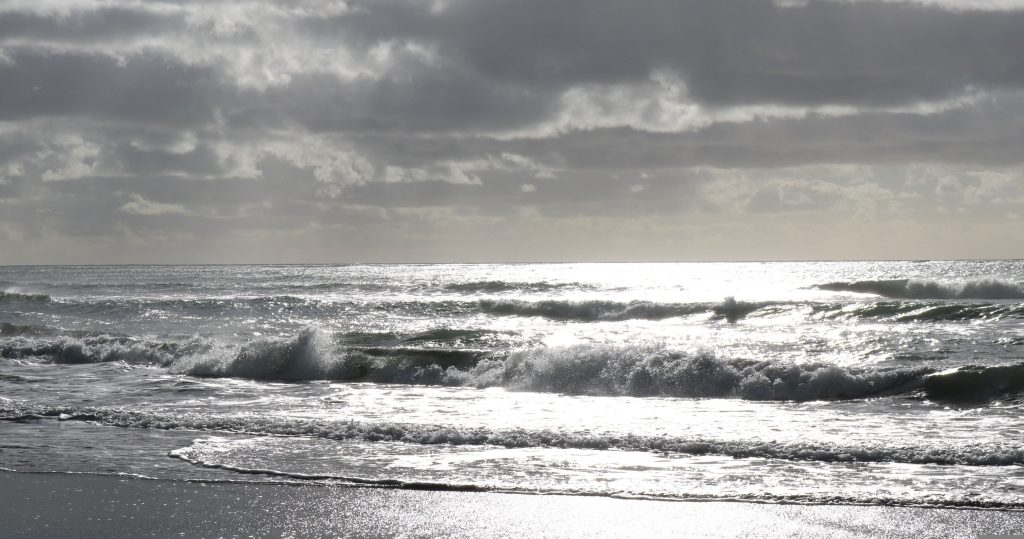
Eye Health Risks Associated with Water Reflections
The reflective properties of water bodies and clouds significantly elevate the risk of eye damage due to UV exposure. Prolonged exposure to UV rays reflected off water surfaces, even on cloudy days, can lead to several eye conditions.
Photokeratitis: Often likened to a sunburn of the eyes, photokeratitis is a painful but temporary warning sign of UV damage. It is prevalent in individuals participating in outdoor recreational activities in environments with highly reflective surfaces like water, sand and snow.
Pterygium: This condition involves a growth on the eye’s surface (the conjunctiva). While pterygium is not cancerous. it can grow to cover part of your cornea and it can affect your vision. Without treatment, you may lose vision in the affacted eye. Also nicknamed “surfer’s eye”, research in this area finds a strong correlation between increased UV exposure and the onset of Pterygia.[1] The incidence of pterygia is higher for those engaged in outdoor work and higher still for those engaged in activity in, on or around water.[2]
Cataract Formation: Evidence from 22 studies on humans and the review of ecological studies previously conducted showed that lifetime exposure to UV radiation has a direct association with prevalence of cataracts. [3]
These conditions highlight the importance of protecting your eyes from UV rays. Much of the damage from UV radiation is cumulative, so getting into the habit of wearing sunglasses on the water at a young age is highly recommended.
[1] Moran DJ, Hollows FC. Pterygium and ultraviolet radiation: a positive correlation. Br J Ophthalmol 1984;68:343-6.
[2] Ningsih, D. P. S., Rahmawati, I. (2021). Nurse and Health: Jurnal Keperawatan. 10 (1): 65-71
[3] McCarty CA, Taylor HR . A review of the epidemiologic evidence linking ultraviolet radiation and cataracts. Dev Ophthalmol 2002; 35: 21–31.
What are the benefits of wearing marine sunglasses?
Understanding the risks is only one part of the equation; taking proactive steps for protection is crucial. Watersports sunglasses are not just a functional accessory to lift your performance; they are weapons against the elements that offer vital protection for your eyes. When you choose the right pair, you significantly reduce the risks associated with UV and visible light exposure, together with maintaining crisp and clear vision and hazard reduction.
Of course, the primary benefit of sunglasses is their ability to block harmful UV rays. Quality sunglasses are designed to filter out 100% UVA and UVB radiation, effectively preventing these rays from reaching your eyes.
Beyond UV protection, sunglasses also reduce reflected glare (which rests in the visible light spectrum), a common problem on water. Polarized lenses are particularly effective in this regard, as they are designed to filter out up to 99% of the glare reflected off surfaces like water. This not only makes for more comfortable vision but also boosts safety during activities like kitesurfing and windsurfing, where clear visibility is essential to navigate at speed.
Wearing sunglasses can help in maintaining good eye health in general. In combination with sunscreen, they protect the delicate skin around your eyes from sun exposure. Wrap-fit sunglasses also prevent wind, spray, and other airborne articles from irritating your eyes, which is especially beneficial in open water environments.
In summary, sunglasses provide a comprehensive shield for your eyes, guarding against both immediate discomfort and long-term health risks.
What are the best watersports sunglasses for cloudy weather?
Selecting the right sunglasses is essential for maximum protection and comfort, especially for water-based activities. Here are some key features to consider:
1.UV Protection: You’ll want sunglasses that offer 100% UV protection against both UVA and UVB rays. UVC is taking out by the Ozone layer and deoes not reach the surface of the earth. Remember, the colour and darkness of the lens tint does not indicate the level of UV protection.
2. Polarization: While polarization doesn’t block UV rays, it significantly reduces glare from water surfaces. This feature is highly recommended for watersports as it improves visual comfort and clarity by filtering out reflected light. Note that reflected glare is at its worst in the spring and autumn months when the sun has a lower arc to the horizon, especially at very northern or southern latitudes – extending the ‘glare window’ by several hours.
3. Lens Material: The material of the lens matters, especially in an environment where physical activity and exposure to water are involved. Polycarbonate, nylon and polyurethane lenses are light and impact-resistant, making them a durable choice. Glass is highly unsuitable for watersports use.
4. Coverage and Fit: Sunglasses with a wraparound design offer better protection as they limit the amount of sunlight and UV that enters from the sides, top and bottom. Ensure that your sunglasses fit well and comfortably; they shouldn’t slip off your nose or pinch you behind your ears.
5. Lens Color and Tint: Different lens colours can enhance contrast and visual clarity in various light conditions. Red, brown and violet tints are useful in cloudy conditions and can improve contrast against blue and green backgrounds, like water and sky.
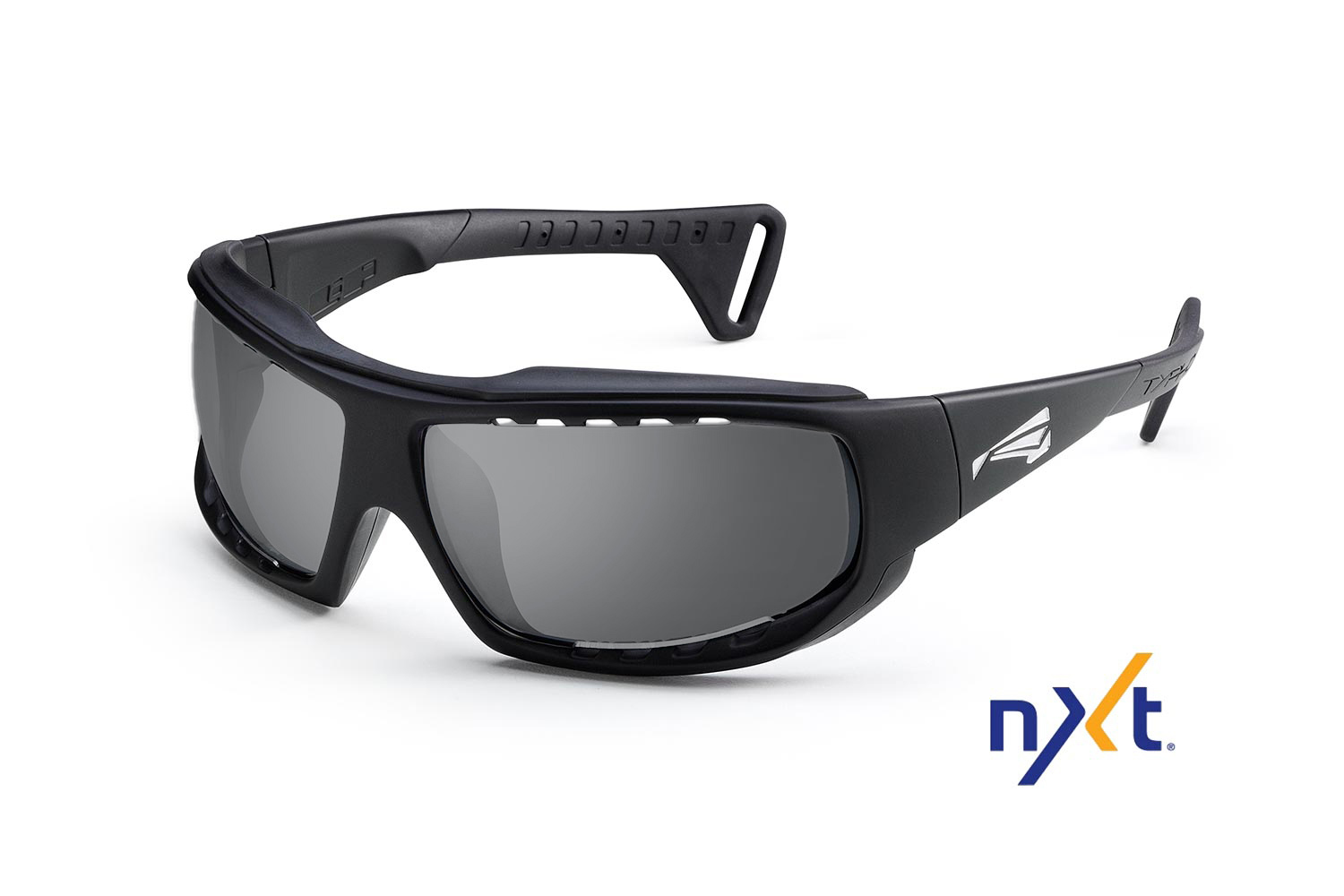
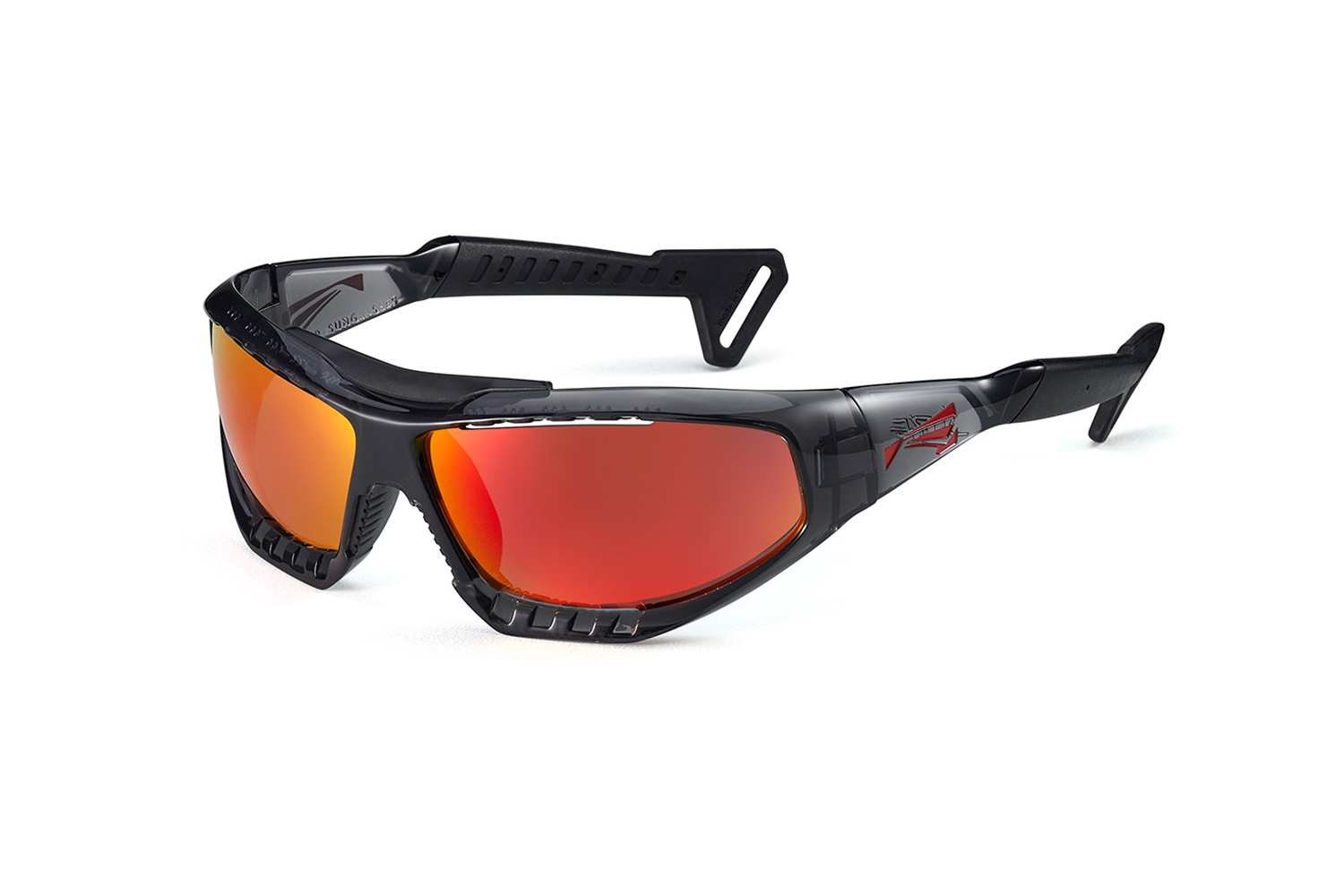
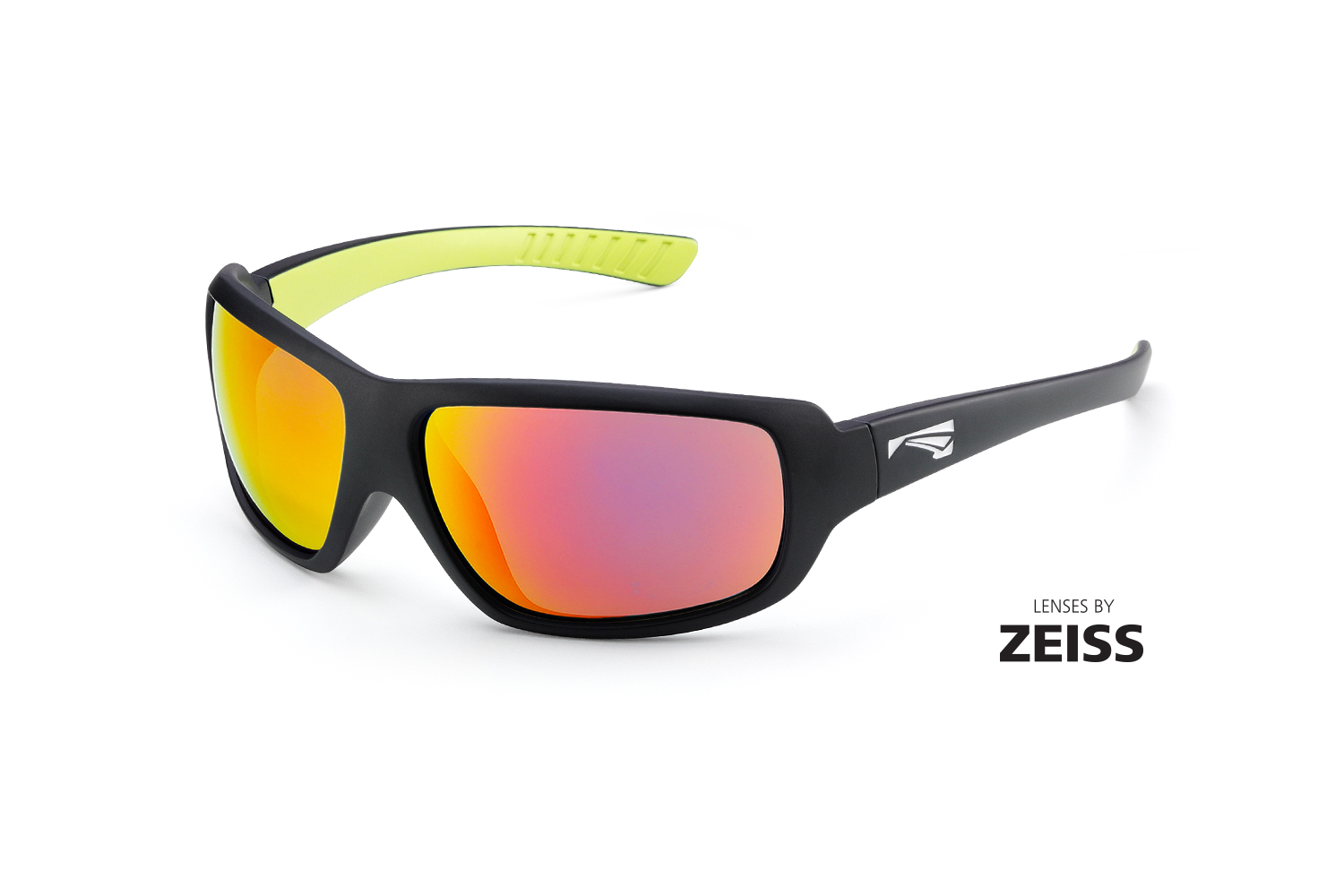
TYPHOON
SURGE
FLO
Summing Up
The importance of watersports sunglasses extends far beyond sunny days. They are a crucial shield for your eyes, not just against the brightness of the sun but more importantly against the invisible dangers of UV radiation and the discomfort of glare, especially around water. Whether the skies are clear or cloud-covered, your eyes are exposed to elements that can have both immediate and long-term detrimental effects on your eye health.
Now you know that it’s advisable to wear watersports sunglasses whatever the weather, it’s time to Gear Up with the world’s most advanced watersports eyewear!
